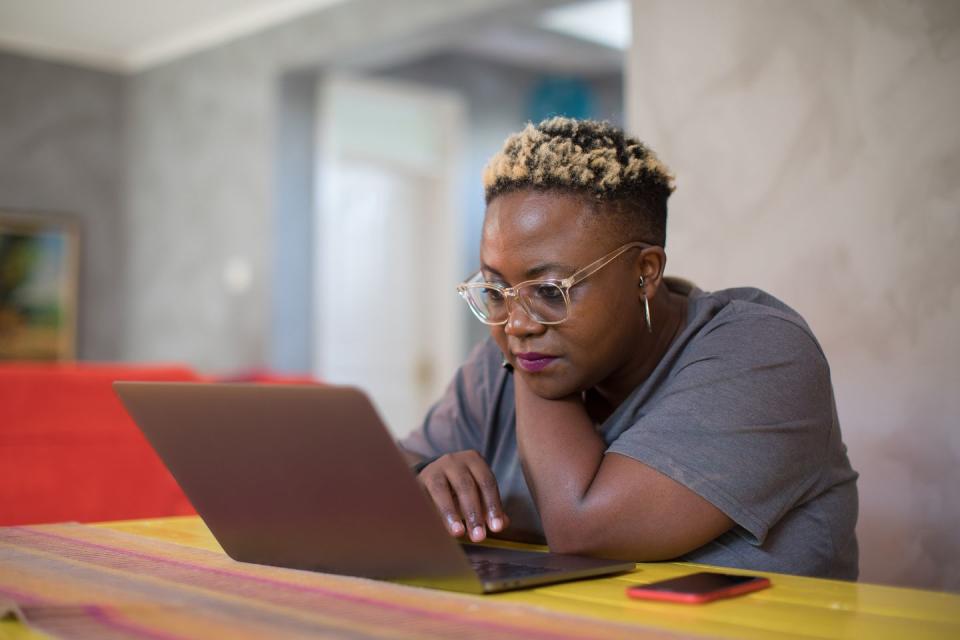Ashley Tisdale Wants Women to Be More Open About Sexual Health

Ashley Tisdale is living her best life post High School Musical: The actress and singer is married, just released a new album called Symptoms, and is currently filming a show for Netflix called Merry Happy Whatever. Oh, and did you hear that she's now helping women gain control of their sexual health?!
"Women should take control of their reproductive health and have conversations with their healthcare providers about what's best for them," says Tisdale, who teamed up with Allergan for the ‘Women Who Know’ campaign that encourages women to seek accurate information about contraceptive options. "It may seem like a scary subject but I would like to be able to say 'no, it's not.'"
Research shows that patients can be hesitant to address sexual health concerns, and patients generally prefer that their doctors initiate those conversations.
"I think women are most comfortable speaking about birth control and contraception options, but I think they’re less comfortable bringing up the topics of sex, intimacy, and sexual health," says Holly Cummings, MD, OB/GYN at Penn Medicine. "In general, some don't feel comfortable talking about sex even with their closest friends, so to bring up at the doctor's office is a little bit more stressful."
But truth is, having conversations with your doctor about sex, sexual health, and birth control can help you practice safe sex. Healthcare providers have these types of discussions with their patients every day and can help you navigate through any questions, concerns, or insecurities that you may have.
"I want people to know that we're very comfortable talking about sex and we absolutely want to know if you’re having issues with sex or your health," Cummings says. The good news is that there are some ways that you can become more comfortable with your body and sexual health.
Here are Tisdale's best tips for becoming more comfortable with your body, reproductive health, and your contraceptive options:
1. Talk to your doctor.
This was Tisdale's number one piece of advice when it comes to reproductive health. "I'm always someone who asks a lot of questions," she says. "I like to use my platform to inspire people, and I hope that everyone who hears me advocating for it will feel more comfortable to talk about it themselves with their healthcare providers."
Tisdale has an older sister who "has been such a guide" in her life with sexual and reproductive health, though the actress admits that her sister may not even know what's right for her, so it's best to "speak with someone you trust in the medical field."
Cummings adds that, as an OB/GYN, she's always happy to follow her patient's lead and answer questions if her patient brings them up to her. "And if they don't bring up any questions, I'll usually bring up the topic of sex and sexual health because I know that it's difficult for some people to talk about."

2. Try practicing in the mirror.
Although you may know the questions you want to ask your doctor, it may be hard for the words to actually come out of your mouth when it comes time to ask them. "A lot of patients feel embarrassed to bring up intimate topics with physicians, but the reality is we’re here to talk about it," Cummings says. "There's pretty much nothing that your doctor hasn't heard, so you shouldn't feel embarrassed."
However, if you're really struggling, Cummings has a simple solution: Practice talking in the mirror or with a friend, just to have those words you want to say come out of your mouth. This may help you feel more comfortable come time to speak with your healthcare provider.
3. Look for information online.
In addition to speaking with your doctor, you can also find a wealth of resources, data, and tools online to help you become more knowledgeable and comfortable with your sexual health.
"I feel like it’s so much better to know more about your sexual health and to research and to know what to look out for and what’s right for you," Tisdale says. The World Health Organization says that, in order for people to have healthy sex lives, they have to have access to the right information about reproductive health. You can find some of that information online at trustable resources like the American Sexual Health Association or Planned Parenthood.

4. Know your contraceptive options.
When it comes to preventing pregnancy, there are a lot of options out there, and it can be overwhelming at times. "On one end of the spectrum there’s condoms and spermicides that you always have to think about every time you have sex," Cummings says. "At the other end of the spectrum are long acting reversible contraceptions like IUD implants that are always working to prevent pregnancy so you don't have to think every time you have sex."
Couples can use a male or female condom to prevent pregnancy, a contraceptive sponge, a diaphragm, or a cervical cap. Women can also receive contraceptive injection, take birth control hormones, try a contraceptive patch, or implant a vaginal ring or an IUD. A permanent birth control solution would be Tubal ligation in women or a vasectomy in males.
"There are important risks with different contraceptive methods and everyone is different," Tisdale says. "It's all about finding out what works best for you, especially with pregnancy prevention, because if you're traveling working a mom or not ready to expand your family, it’s important to know that there are options and you can feel safe about it."
5. Embrace your sexual health.
Sex is good for both your mental and physical health, so you should never feel guilty about wanting to get it on. "Having healthy sexual relationships can be good for your physical and emotional wellbeing," Cummings says. "Sex burns calories as form of exercise and releases hormones in the body that help with mood."
But it's important to practice safe sex. "Safe sex has a lot of meanings," Cummings says. "Safe to me is consensual and people are respecting each other’s wishes and boundaries. Another meaning for a lot of people is preventing STI using condoms, and also preventing pregnancy if you're not planning to be pregnant at the time."
Of course, knowledge is power and helps women stay in control of their reproductive health. "I think that starts from knowing your contraceptive options, deciding whether and when to have sex, and being in control of preventing pregnancy or getting pregnant," Cummings says. "I hope to use my platform to inspire women across the nation to open up a conversation with their healthcare providers — and join me in becoming a ‘Woman Who Knows,'" Tisdale adds.
For more information, visit www.loloestrin.com.
Stay updated on the latest science-backed health, fitness, and nutrition news by signing up for the Prevention.com newsletter here. For added fun, follow us on Instagram.
You Might Also Like

